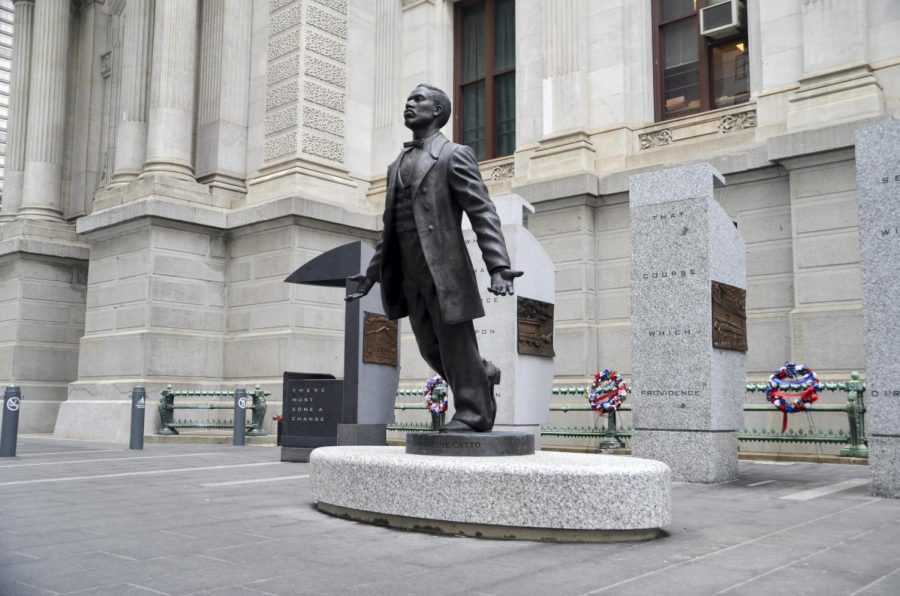Octavius Catto
In honor of Black History Month, every day The Cardinal will feature a prominent and historical Black American, living or dead, who has worked toward change, advancement, and/or world peace. Some of them are heroes, and some are unsung heroes who have made a contribution to society.
February 6, 2021
Octavius Valentine Catto was born on February 22, 1839. He was an American educator, intellectual, and civil rights activist in Philadelphia. He became principal of male students at the Institute for Colored Youth, where he had also been educated. Born free in Charleston, South Carolina, in a prominent mixed-race family, he moved north as a boy with his family. He became educated and served as a teacher, becoming active in civil rights.
Catto spoke of the Civil War, then in progress. He believed that the United States government had to evolve several times in order to change. He understood that the change must come not necessarily for the benefit of African Americans, but more for America’s political and industrial welfare. This would be a mutual benefit for all Americans. The Civil War increased Catto’s activism for abolition and equal rights. He joined with Frederick Douglass and other black leaders to form a Recruitment Committee to sign up black men to fight for the Union and emancipation. In November 1864, Catto was elected to be the Corresponding Secretary of the Pennsylvania Equal Rights League. He also served as Vice President of the State Convention of Colored People held in Harrisburg, Pennsylvania , in February 1865.
Catto fought fearlessly for the desegregation of Philadelphia’s trolley car system. The May 18, 1865 issue of the New York Times ran a story discussing the civil disobedience tactics employed by Catto as he fought for civil rights. Catto became a martyr to racism, as he was shot and killed in election-day violence in Philadelphia, where ethnic Irish of the Democratic Party, which was anti-Reconstruction and had opposed black suffrage, attacked black men to prevent their voting for Republican candidates.
Catto’s military funeral at Lebanon Cemetery in Passyunk was well-attended. The murder of Catto, an important leader, and violence throughout the election, coupled with the resurgence of the anti-Reconstruction Democratic Party in the city, marked the beginning of a decline in black militancy in 19th-century Philadelphia. Later, after the cemetery was closed down, Catto’s remains were reinterred at Eden Cemetery, in Collingdale, Pennsylvania.


